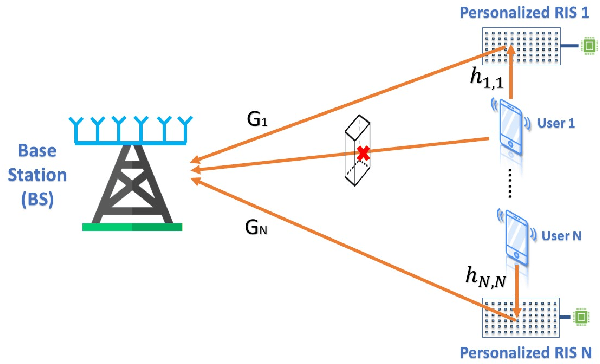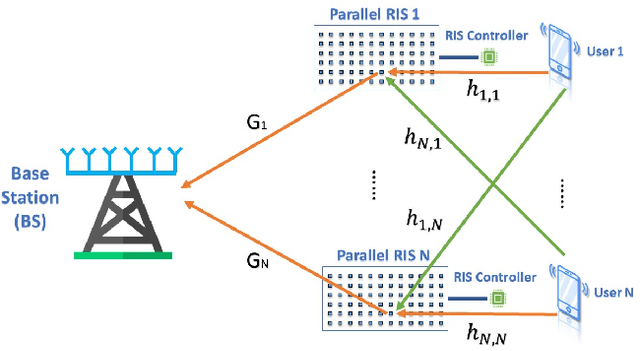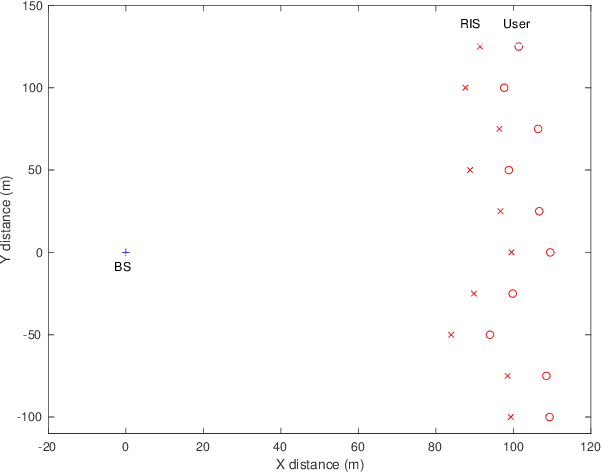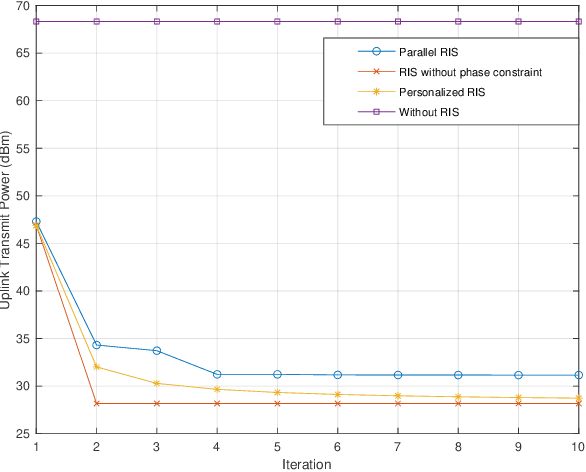Jiayu Mao
Automated Spectrum Sensing and Analysis Framework
Jan 16, 2026Abstract:Spectrum sensing and analysis is crucial for a variety of reasons, including regulatory compliance, interference detection and mitigation, and spectrum resource planning and optimization. Effective, real-time spectrum analysis remains a challenge, stemming from the need to analyse an increasingly complex and dynamic environment with limited resources. The vast amount of data generated from sensing the spectrum at multiple sites requires sophisticated data analysis and processing techniques, which can be technically demanding and expensive. This paper presents a novel, holistic framework developed and deployed at multiple locations across the USA for spectrum analysis and describes the different parts of the end-to-end pipeline. The details of each of the modules of the pipeline, data collection and pre-processing at remote locations, transfer to a centralized location, post-processing analysis, visualization, and long-term storage, are reported. The motivation behind this work is to develop a robust spectrum analysis framework that can help gain greater insights into the spectrum usage across the country and augment additional use cases such as dynamic spectrum sharing.
LarS-Net: A Large-Scale Framework for Network-Level Spectrum Sensing
Jan 16, 2026Abstract:As the demand of wireless communication continues to rise, the radio spectrum (a finite resource) requires increasingly efficient utilization. This trend is driving the evolution from static, stand-alone spectrum allocation toward spectrum sharing and dynamic spectrum sharing. A critical element of this transition is spectrum sensing, which facilitates informed decision-making in shared environments. Previous studies on spectrum sensing and cognitive radio have been largely limited to individual sensors or small sensor groups. In this work, a large-scale spectrum sensing network (LarS-Net) is designed in a cost-effective manner. Spectrum sensors are either co-located with base stations (BSs) to share the tower, backhaul, and power infrastructure, or integrated directly into BSs as a new feature leveraging active BS antenna systems. As an example incumbent system, fixed service microwave link operating in the lower-7 GHz band is investigated. This band is a primary candidate for 6G, being considered by the WRC-23, ITU, and FCC. Based on Monte Carlo simulations, we determine the minimum subset of BSs equipped with sensing capability to guarantee a target incumbent detection probability. The simulations account for various sensor antenna configurations, propagation channel models, and duty cycles for both incumbent transmissions and sensing operations. Building on this framework, we introduce three network-level sensing performance metrics: Emission Detection Probability (EDP), Temporal Detection Probability (TDP), and Temporal Mis-detection Probability (TMP), which jointly capture spatial coverage, temporal detectability, and multi-node diversity effects. Using these metrics, we analyze the impact of LarS-Net inter-site distance, noise uncertainty, and sensing duty-cycle on large-scale sensing performance.
AI-Driven Spectrum Occupancy Prediction Using Real-World Spectrum Measurements
Jan 16, 2026Abstract:Spectrum occupancy prediction is a critical enabler for real-time and proactive dynamic spectrum sharing (DSS), as it can provide short-term channel availability information to support more efficient spectrum access decisions in wireless communication systems. Instead of relying on open-source datasets or simulated data, commonly used in the literature, this paper investigates short-horizon spectrum occupancy prediction using mid-band, 24X7 real-world spectrum measurement data collected in the United States. We construct a multi-band channel occupancy dataset through analyzing 61 days of empirical data and formulate a next-minute channel occupancy prediction task across all frequency channels. This study focuses on AI-driven prediction methods, including Random Forest, Extreme Gradient Boosting (XGBoost), and a Long Short-Term Memory (LSTM) network, and compares their performance against a conventional Markov chain-based statistical baseline. Numerical results show that learning-based methods outperform the statistical baseline on dynamic channels, particularly under fixed false-alarm constraints. These results demonstrate the effectiveness of AI-driven spectrum occupancy prediction, indicating that lightweight learning models can effectively support future deployment-oriented DSS systems.
Providing Differential Privacy for Federated Learning Over Wireless: A Cross-layer Framework
Dec 05, 2024



Abstract:Federated Learning (FL) is a distributed machine learning framework that inherently allows edge devices to maintain their local training data, thus providing some level of privacy. However, FL's model updates still pose a risk of privacy leakage, which must be mitigated. Over-the-air FL (OTA-FL) is an adapted FL design for wireless edge networks that leverages the natural superposition property of the wireless medium. We propose a wireless physical layer (PHY) design for OTA-FL which improves differential privacy (DP) through a decentralized, dynamic power control that utilizes both inherent Gaussian noise in the wireless channel and a cooperative jammer (CJ) for additional artificial noise generation when higher privacy levels are required. Although primarily implemented within the Upcycled-FL framework, where a resource-efficient method with first-order approximations is used at every even iteration to decrease the required information from clients, our power control strategy is applicable to any FL framework, including FedAvg and FedProx as shown in the paper. This adaptation showcases the flexibility and effectiveness of our design across different learning algorithms while maintaining a strong emphasis on privacy. Our design removes the need for client-side artificial noise injection for DP, utilizing a cooperative jammer to enhance privacy without affecting transmission efficiency for higher privacy demands. Privacy analysis is provided using the Moments Accountant method. We perform a convergence analysis for non-convex objectives to tackle heterogeneous data distributions, highlighting the inherent trade-offs between privacy and accuracy. Numerical results show that our approach with various FL algorithms outperforms the state-of-the-art under the same DP conditions on the non-i.i.d. FEMNIST dataset, and highlight the cooperative jammer's effectiveness in ensuring strict privacy.
Adaptive Personalized Over-the-Air Federated Learning with Reflecting Intelligent Surfaces
Dec 04, 2024Abstract:Over-the-air federated learning (OTA-FL) unifies communication and model aggregation by leveraging the inherent superposition property of the wireless medium. This strategy can enable scalable and bandwidth-efficient learning via simultaneous transmission of model updates using the same frequency resources, if care is exercised to design the physical layer jointly with learning. In this paper, a federated learning system facilitated by a heterogeneous edge-intelligent network is considered. The edge users (clients) have differing user resources and non-i.i.d. local dataset distributions. A general non-convex learning objective is considered for the model training task(s) at hand. We augment the network with Reconfigurable Intelligent Surfaces (RIS) in order to enhance the learning system. We propose a cross-layer algorithm that jointly assigns communication, computation and learning resources. In particular, we adaptively adjust the number of local steps in conjunction with RIS configuration to boost the learning performance. Our system model considers channel noise and channel estimation errors in both the uplink (model updates) and downlink (global model broadcast), employing dynamic power control for both. We provide the convergence analysis for the proposed algorithms and extend the frameworks to personalized learning. Our experimental results demonstrate that the proposed algorithms outperform the state-of-the-art joint communication and learning baselines.
Personalized Over-the-Air Federated Learning with Personalized Reconfigurable Intelligent Surfaces
Jan 22, 2024Abstract:Over-the-air federated learning (OTA-FL) provides bandwidth-efficient learning by leveraging the inherent superposition property of wireless channels. Personalized federated learning balances performance for users with diverse datasets, addressing real-life data heterogeneity. We propose the first personalized OTA-FL scheme through multi-task learning, assisted by personal reconfigurable intelligent surfaces (RIS) for each user. We take a cross-layer approach that optimizes communication and computation resources for global and personalized tasks in time-varying channels with imperfect channel state information, using multi-task learning for non-i.i.d data. Our PROAR-PFed algorithm adaptively designs power, local iterations, and RIS configurations. We present convergence analysis for non-convex objectives and demonstrate that PROAR-PFed outperforms state-of-the-art on the Fashion-MNIST dataset.
An Adaptive Framework of Geographical Group-Specific Network on O2O Recommendation
Dec 28, 2023



Abstract:Online to offline recommendation strongly correlates with the user and service's spatiotemporal information, therefore calling for a higher degree of model personalization. The traditional methodology is based on a uniform model structure trained by collected centralized data, which is unlikely to capture all user patterns over different geographical areas or time periods. To tackle this challenge, we propose a geographical group-specific modeling method called GeoGrouse, which simultaneously studies the common knowledge as well as group-specific knowledge of user preferences. An automatic grouping paradigm is employed and verified based on users' geographical grouping indicators. Offline and online experiments are conducted to verify the effectiveness of our approach, and substantial business improvement is achieved.
RIS-Assisted Over-the-Air Adaptive Federated Learning with Noisy Downlink
Sep 19, 2023Abstract:Over-the-air federated learning (OTA-FL) exploits the inherent superposition property of wireless channels to integrate the communication and model aggregation. Though a naturally promising framework for wireless federated learning, it requires care to mitigate physical layer impairments. In this work, we consider a heterogeneous edge-intelligent network with different edge device resources and non-i.i.d. user dataset distributions, under a general non-convex learning objective. We leverage the Reconfigurable Intelligent Surface (RIS) technology to augment OTA-FL system over simultaneous time varying uplink and downlink noisy communication channels under imperfect CSI scenario. We propose a cross-layer algorithm that jointly optimizes RIS configuration, communication and computation resources in this general realistic setting. Specifically, we design dynamic local update steps in conjunction with RIS phase shifts and transmission power to boost learning performance. We present a convergence analysis of the proposed algorithm, and show that it outperforms the existing unified approach under heterogeneous system and imperfect CSI in numerical results.
ROAR-Fed: RIS-Assisted Over-the-Air Adaptive Resource Allocation for Federated Learning
Sep 18, 2023


Abstract:Over-the-air federated learning (OTA-FL) integrates communication and model aggregation by exploiting the innate superposition property of wireless channels. The approach renders bandwidth efficient learning, but requires care in handling the wireless physical layer impairments. In this paper, federated edge learning is considered for a network that is heterogeneous with respect to client (edge node) data set distributions and individual client resources, under a general non-convex learning objective. We augment the wireless OTA-FL system with a Reconfigurable Intelligent Surface (RIS) to enable a propagation environment with improved learning performance in a realistic time varying physical layer. Our approach is a cross-layer perspective that jointly optimizes communication, computation and learning resources, in this general heterogeneous setting. We adapt the local computation steps and transmission power of the clients in conjunction with the RIS phase shifts. The resulting joint communication and learning algorithm, RIS-assisted Over-the-air Adaptive Resource Allocation for Federated learning (ROAR-Fed) is shown to be convergent in this general setting. Numerical results demonstrate the effectiveness of ROAR-Fed under heterogeneous (non i.i.d.) data and imperfect CSI, indicating the advantage of RIS assisted learning in this general set up.
Iterative Power Control for Wireless Networks with Distributed Reconfigurable Intelligent Surfaces
Dec 02, 2022



Abstract:Reconfigurable Intelligent Surfaces (RIS) are a new paradigm which, with judicious deployment and alignment, can enable more favorable propagation environments and better wireless network design. As such, they can offer a number of potential benefits for next generation wireless systems including improved coverage, better interference management and even security. In this paper, we consider an uplink next generation wireless system where each user is assisted with an RIS. We study the uplink power control problem in this distributed RIS-assisted wireless network. Specifically, we aim to minimize total uplink transmit power of all the users subject to each user's reliable communication requirements at the base station by a joint design of power, receiver filter and RIS phase matrices. We propose an iterative power control algorithm, combined with a successive convex approximation technique to solve the problem with non-convex phase constraints. Numerical results illustrate that distributed RIS assistance leads to uplink power savings when direct links are weak.
 Add to Chrome
Add to Chrome Add to Firefox
Add to Firefox Add to Edge
Add to Edge